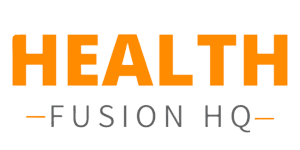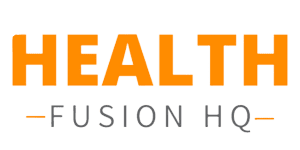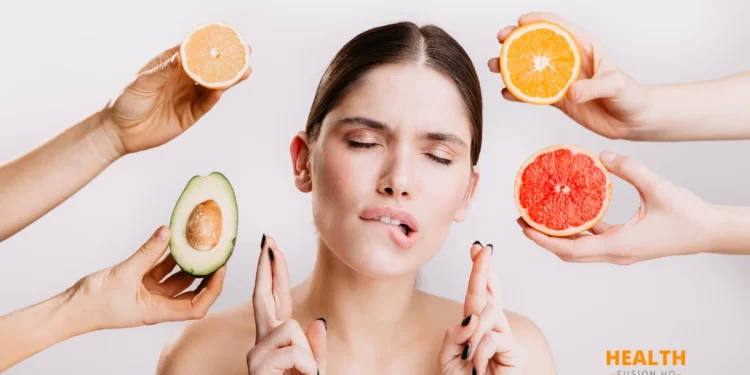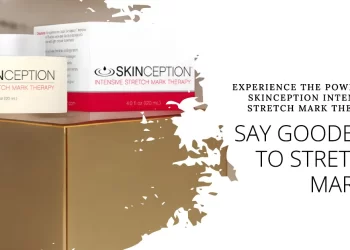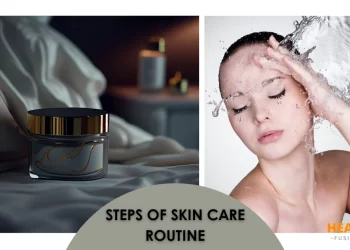Hormonal acne diet – exposing the culprits in your food.
Hormonal acne, also known as acne vulgaris or androgenic acne, is a prevalent skin condition primarily caused by hormonal changes. It is often characterized by face, chest, and back breakouts, and can occur at any age. Although it’s commonly associated with puberty, adults can also experience hormonal acne due to factors such as stress, menstrual cycles, and certain medications. Understanding the triggers, particularly the role of diet, can help manage and reduce the occurrence of hormonal acne.
The Role of Hormonal Acne Diet
Diet plays a significant role in managing hormonal acne. Certain foods, particularly those with a high glycemic index (GI), can trigger acne breakouts by causing hormone levels and insulin resistance fluctuations. These foods cause a rapid increase in blood sugar levels, leading to increased insulin production. High insulin levels can stimulate the production of skin oils and lead to the clogging of follicles, which can result in acne.
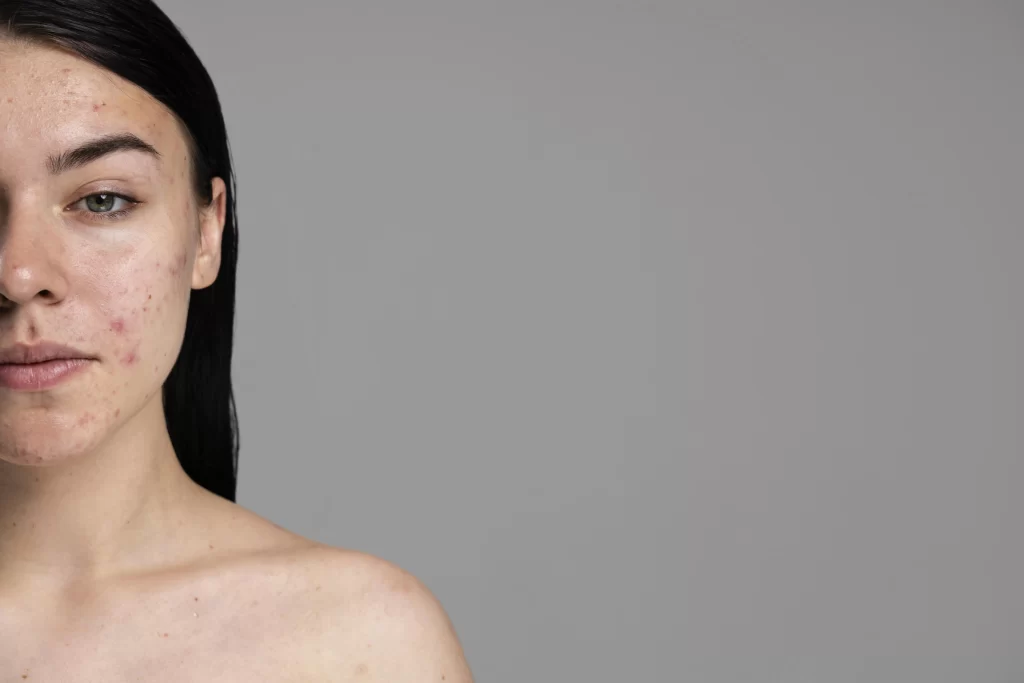
Foods That May Trigger Hormonal Acne (Foods To Avoid)
When it comes to managing hormonal acne, or acne vulgaris, understanding the role of a hormonal acne diet is crucial. Certain foods have been identified as potential triggers for acne, leading to increased inflammation and hormonal imbalances in the body. Conversely, some foods help hormonal acne, acting as natural remedies to soothe inflammation and balance hormone levels.
In our quest to treat hormonal acne naturally, knowing which foods to eat and avoid is essential. The best foods for a hormonal acne diet are typically those rich in anti-inflammatory properties and essential nutrients that support skin health. These foods can help reduce inflammation, a key factor in acne development, and promote healthier skin.
On the other hand, certain foods, often those high in sugars, unhealthy fats, and artificial additives, can exacerbate acne symptoms and should be avoided. By understanding the impact of these dietary choices, you can take proactive steps toward managing your hormonal acne and promoting healthier skin.
In the following sections, we will delve deeper into the specifics of the hormonal acne diet, highlighting the best foods to include and the foods to avoid. This knowledge will empower you to make informed dietary decisions to help manage your hormonal acne.
High Glycemic Index (GI) Foods
High-GI foods, such as sweets, sugary baked goods, and refined carbohydrates are the type of foods to avoid. They can increase blood sugar levels rapidly. This spike can lead to hormonal imbalances that may trigger acne. These foods are quickly absorbed into the bloodstream, causing a rapid rise in insulin levels. Over time, this can lead to insulin resistance, a condition that has been linked to increased acne severity.
Cow’s Milk
Some studies have linked cow’s milk and other dairy products to acne, possibly due to the presence of hormones and bioactive molecules in milk. These substances can interfere with our body’s hormonal balance, leading to increased oil production and potential acne breakouts. While not everyone who consumes dairy will experience acne, those who are sensitive or allergic to dairy products may notice an increase in acne when consuming these products.
Chocolate
While the link between chocolate and acne is still debated, some studies suggest that certain types of chocolate, particularly those high in sugar and milk, may exacerbate acne. It’s important to note that it’s likely the sugar and dairy content in chocolate, rather than the cocoa itself, that’s contributing to acne.
| Foods That May Trigger Hormonal Acne | Description |
| High Glycemic Index (GI) Foods | These include sweets, sugary baked goods, and refined carbohydrates. They can increase blood sugar levels rapidly, leading to hormonal imbalances that may trigger acne. |
| Cow’s Milk | Cow’s milk and other dairy products have been linked to acne in some studies, possibly due to the presence of hormones and bioactive molecules in milk. |
| Chocolate | Certain types of chocolate, particularly those high in sugar and milk, may exacerbate acne. |
| Fast Food | Fast food items are often high in unhealthy fats and sugars, contributing to inflammation and acne. |
| Refined Grains and Sugars | Foods like white bread, pastries, and other processed foods made with refined grains can spike blood sugar and insulin levels, contributing to acne. |
| Saturated and Trans Fats | These types of fats, found in many processed and fried foods, can increase inflammation in the body, potentially leading to acne. |
| Foods High in Omega-6 Fats | A diet high in omega-6 fats and low in omega-3 fats can promote inflammation and acne. These can be found in many processed and fast foods. |

Dietary Changes to Manage Hormonal Acne (Foods That Help Hormonal Acne)
When it comes to managing hormonal acne, making dietary changes can play a significant role. A well-planned meal plan that focuses on certain foods can help with acne, reduce inflammation, and balance the production of hormones in the body. Conversely, certain foods, such as refined foods and high-sugar items, can make acne worse by triggering inflammation and hormonal imbalances.
One of the key dietary factors linked with acne is milk. Several studies have found that acne rates can be higher in people who drank milk regularly, suggesting a potential link between milk intake and acne. This could be due to hormones present in milk, which may interfere with our body’s hormonal balance and contribute to acne.
A hormonal acne diet is not just about avoiding certain foods. It’s also about including foods that can promote clear skin. For instance, a diet rich in omega-3 fatty acids, antioxidants, and low-glycemic foods may improve acne symptoms by reducing inflammation and regulating blood sugar levels.
Refined foods, such as white bread and sugary snacks, can also play a role in the development of acne. These foods cause a rapid spike in blood sugar levels, leading to increased insulin production, which can stimulate oil production and contribute to acne.
In the following sections, we will delve deeper into the specifics of dietary changes that can help manage hormonal acne. By understanding the impact of these dietary choices, you can take proactive steps toward managing your hormonal acne and promoting healthier skin.
Low Glycemic Index (GI) Foods
Switching to a diet rich in low GI foods, such as whole grains, beans, legumes, and certain fruits, can help stabilize blood sugar levels and reduce acne breakouts. These foods are digested more slowly, leading to a gradual rise in blood sugar and insulin levels. This can help maintain a hormonal balance, reducing the likelihood of acne breakouts.
Omega-3 Fatty Acids
Omega-3 fatty acids, found in oily fish, nuts, and seeds, can help reduce inflammation in the body, potentially reducing the severity of acne. These beneficial fats have been shown to decrease inflammatory factors in the body, which can help reduce the inflammation associated with acne.
Antioxidants
Antioxidants, such as vitamins C and E and selenium, can help protect the skin from damage and may help reduce acne. These substances work by neutralizing harmful free radicals in the body, which can damage skin cells and lead to inflammation and acne.
Milk Alternatives
For those who find that cow’s milk triggers their acne, alternatives such as almond, soy, or oat milk may be a good option. These alternatives often have lower levels of hormones than cow’s milk, making them a better choice for those sensitive to the hormones in dairy products.
| Foods That May Help Hormonal Acne | Description |
| Low Glycemic Index (GI) Foods | These include whole grains, beans, legumes, and certain fruits. They can help stabilize blood sugar levels and reduce acne breakouts. |
| Omega-3 Fatty Acids | Found in oily fish, nuts, and seeds, omega-3 fatty acids can help reduce inflammation in the body, potentially reducing the severity of acne. |
| Antioxidants | Foods rich in antioxidants, such as fruits, vegetables, nuts, and seeds, can help protect the skin from damage and may help reduce acne. |
| Probiotics | Foods like yogurt, kefir, sauerkraut, and other fermented foods can promote a healthy gut microbiome, which may help manage acne. |
| Zinc | Foods high in zinc, such as meat, shellfish, legumes, and seeds, can help reduce inflammation and bacterial growth in the skin, potentially reducing acne. |
| Vitamins A and E | Foods rich in these vitamins, such as sweet potatoes, carrots, spinach, and almonds, can promote skin health and may help reduce acne. |
| Green Tea | Green tea is rich in antioxidants and has anti-inflammatory properties, which may help reduce acne. |
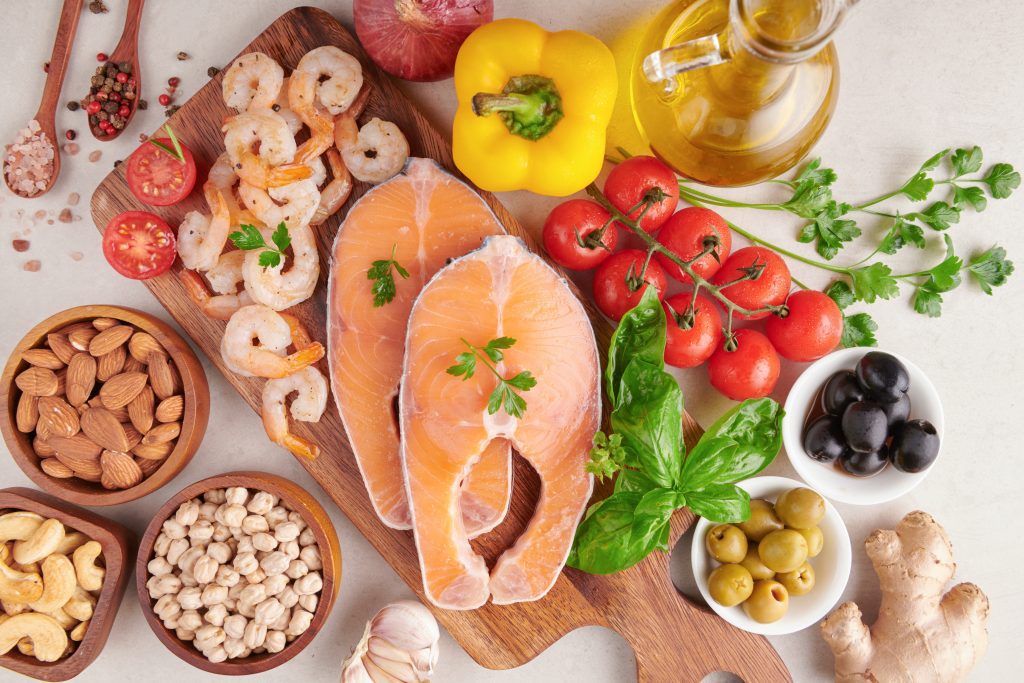
The Role of Supplements in Managing Hormonal Acne
Certain supplements, such as fish oil, zinc, and vitamin D, may also help manage hormonal acne by reducing inflammation and regulating hormone levels. Fish oil, rich in omega-3 fatty acids, can help reduce inflammation, potentially reducing acne severity. Zinc is known for its immune-boosting and anti-inflammatory properties, which can help reduce the redness and inflammation associated with severe forms of acne. Vitamin D, often known as the “sunshine vitamin,” can help regulate the immune system and may have a protective effect against acne.
Personal Experiences with Hormonal Acne
Personal stories and experiences can provide valuable insights and practical tips for managing hormonal acne. These stories often highlight the trial and error involved in finding an effective treatment and emphasize the importance of patience and persistence. They can also provide comfort and reassurance, reminding those struggling with acne that they are not alone and that improvement is possible.
Q&A on Hormonal Acne
Addressing common questions and misconceptions about hormonal acne can help individuals better understand and manage their condition. This can include explaining why acne often worsens during periods of stress, why some people get acne while others do not, and why acne can persist even after adolescence. Providing clear, accurate answers to these questions can help dispel myths and reduce the stigma associated with acne.
Other Ways to Treat Acne
In addition to dietary changes, other treatments such as topical acne treatments, medications, and basic self-care measures can also help manage acne. Topical treatments, such as those containing salicylic acid or benzoyl peroxide, can help unclog pores and reduce acne. Medications, such as oral contraceptives or antibiotics, can help manage more severe forms of acne. Basic self-care measures, such as maintaining a regular skincare routine and managing stress, can also help reduce acne.
The Psychological Impact of Acne
Acne can have a significant impact on an individual’s self-esteem and mental health. It’s important to seek professional help if acne is causing distress or affecting one’s quality of life. Mental health professionals can provide strategies for coping with the emotional impact of acne, and support groups can provide a safe space to share experiences and receive support.
Final Thoughts
While diet can play a significant role in managing hormonal acne, it’s important to remember that each individual is unique, and what works for one person may not work for another. It’s always best to consult with a healthcare professional before making any major dietary changes or starting new treatments. Finding a treatment plan that effectively manages hormonal acne is possible with patience and persistence. Start your hormonal acne diet journey today,
Frequently Asked Questions
Q: What is hormonal acne?
A: Hormonal acne is a type of acne that is caused by hormonal fluctuations in the body. These fluctuations can cause the sebaceous glands to produce more sebum, leading to clogged pores and the development of acne.
Q: What is a hormonal acne diet?
A: A hormonal acne diet is a diet plan focusing on foods that help improve acne and avoid those that worsen acne. It is designed to help treat hormonal acne naturally by addressing the root cause of the issue.
Q: What foods should I eat for hormonal acne?
A: The best foods for hormonal acne include anti-inflammatory foods like tomatoes, green tea extract, and omega-6 fatty acids found in nuts and seeds. Zinc supplements and probiotics are also helpful.
Q: What foods should I avoid for hormonal acne?
A: Foods that can worsen hormonal acne include sugary foods, white bread, and processed foods. Whey protein can also lead to acne breakouts by increasing androgen levels in the body.
Q: How does diet affect acne naturally?
A: Diet can affect acne naturally by controlling blood sugar and insulin-like growth factor 1, both of which play a role in sebum production and the development of acne.
Q: Can a hormonal acne diet help me clear my acne?
A: Yes, a hormonal acne diet can help clear acne by improving skin health and reducing inflammation. It may not work for every individual, but it is a natural and effective way to treat hormonal acne.
Q: Should I see a dermatologist for my hormonal acne?
A: If you have severe acne or if your acne does not improve with changes in diet and lifestyle, it may be helpful to see a dermatologist who can provide additional treatment options.
Q: Does milk cause acne?
A: Studies have found that milk consumption may increase the risk of acne development, especially in individuals who regularly consume milk and dairy products.
Q: Can a traditional diet help with hormonal acne?
A: Yes, traditional diets high in fruits and vegetables and low in processed foods have been found to improve acne symptoms and reduce the risk of acne development.
Q: Can the type of diet I eat affect my chances of getting acne?
A: Yes, studies have shown that modern Western diets high in sugary foods and processed foods may increase the chances of developing acne.
